Publications
On this page, we’ll include working papers and publications as they are published. You can also click here for links to external blogs and media coverage of our research.
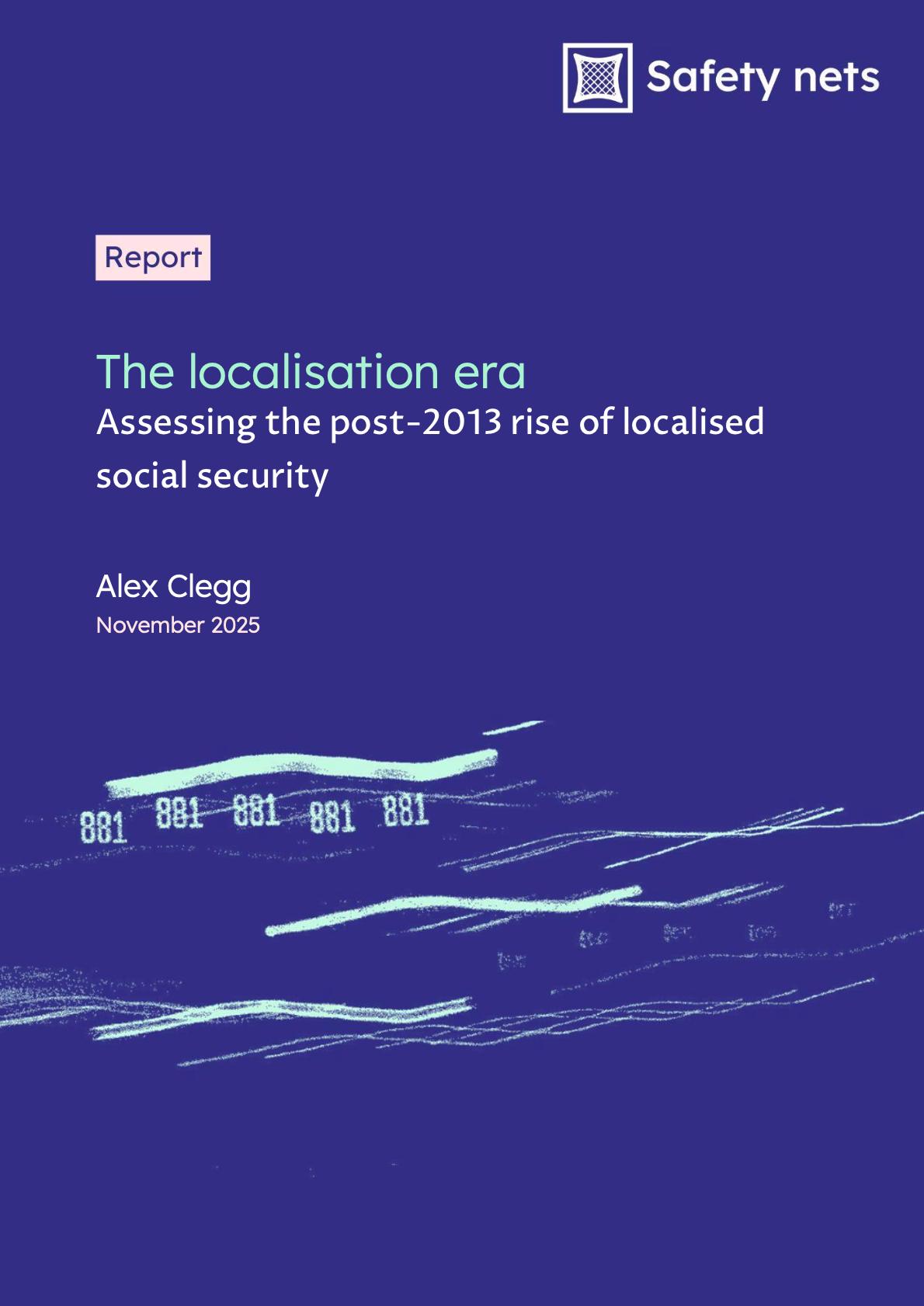
The localisation era Assessing the post-2013 rise of localised social security
This report analyses the provision of, and spending on, ‘localised social security’ (by which we mean support controlled by local authorities). This remains a small part of the overall system – spending on localised support represented 1.2 per cent of overall social security spending in 2024-25 – but it is now 122-times higher in real terms than it was in 2010-11.
The report goes on to consider when delivering support locally is an appropriate and effective alternative to delivering support at a national level, and how the current range of localised support – the vast majority of which is done by English local authorities – meets these principles.
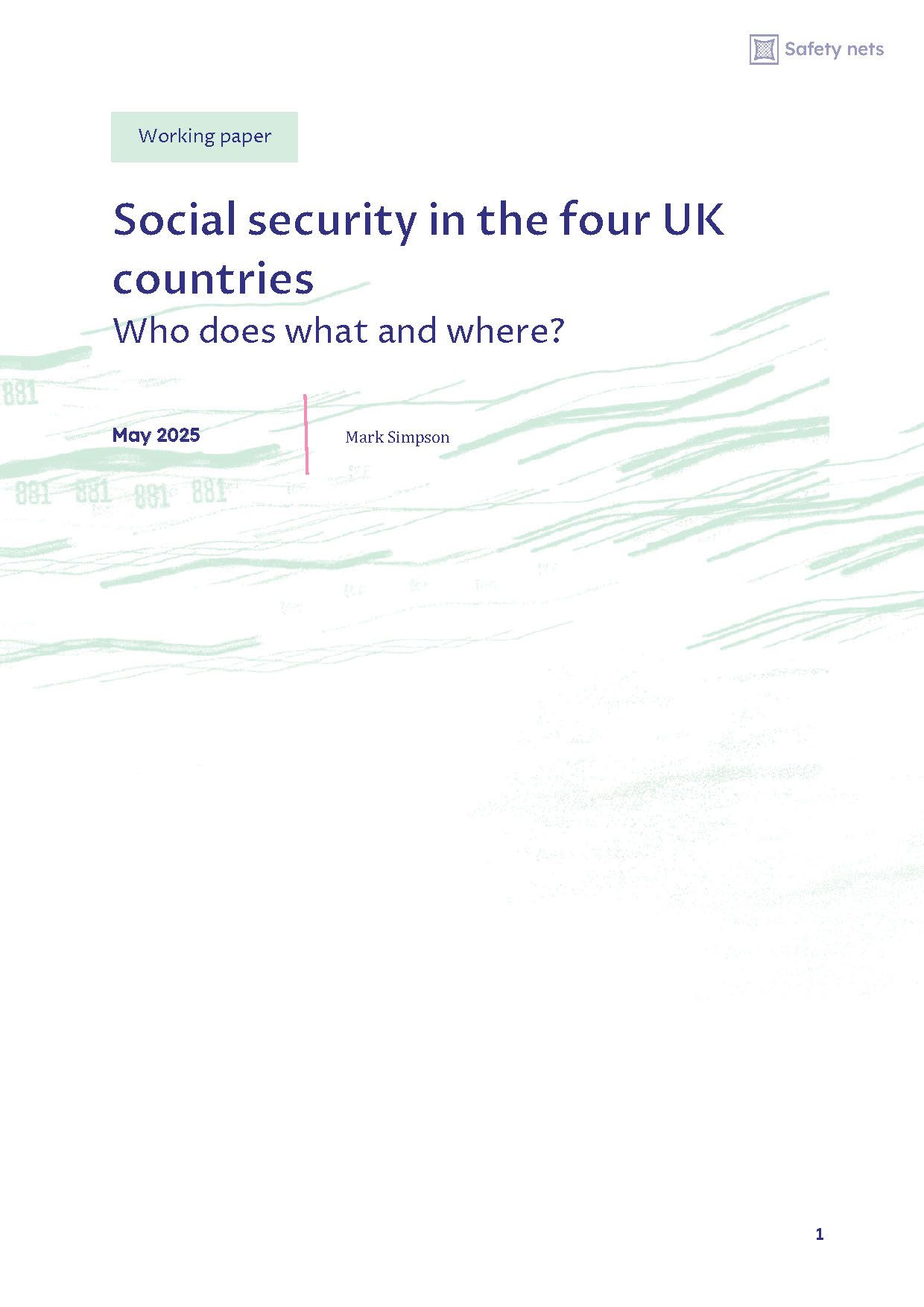
Social security in the four UK countries Who does what and where?
There are significant differences between the UK countries in what tier of government takes decisions about, and is responsible for the delivery of, social security. This working paper sets out what areas of the system are the responsibility of devolved or local government in each country – encompassing legislative and policy competence, operational delivery and funding arrangements.
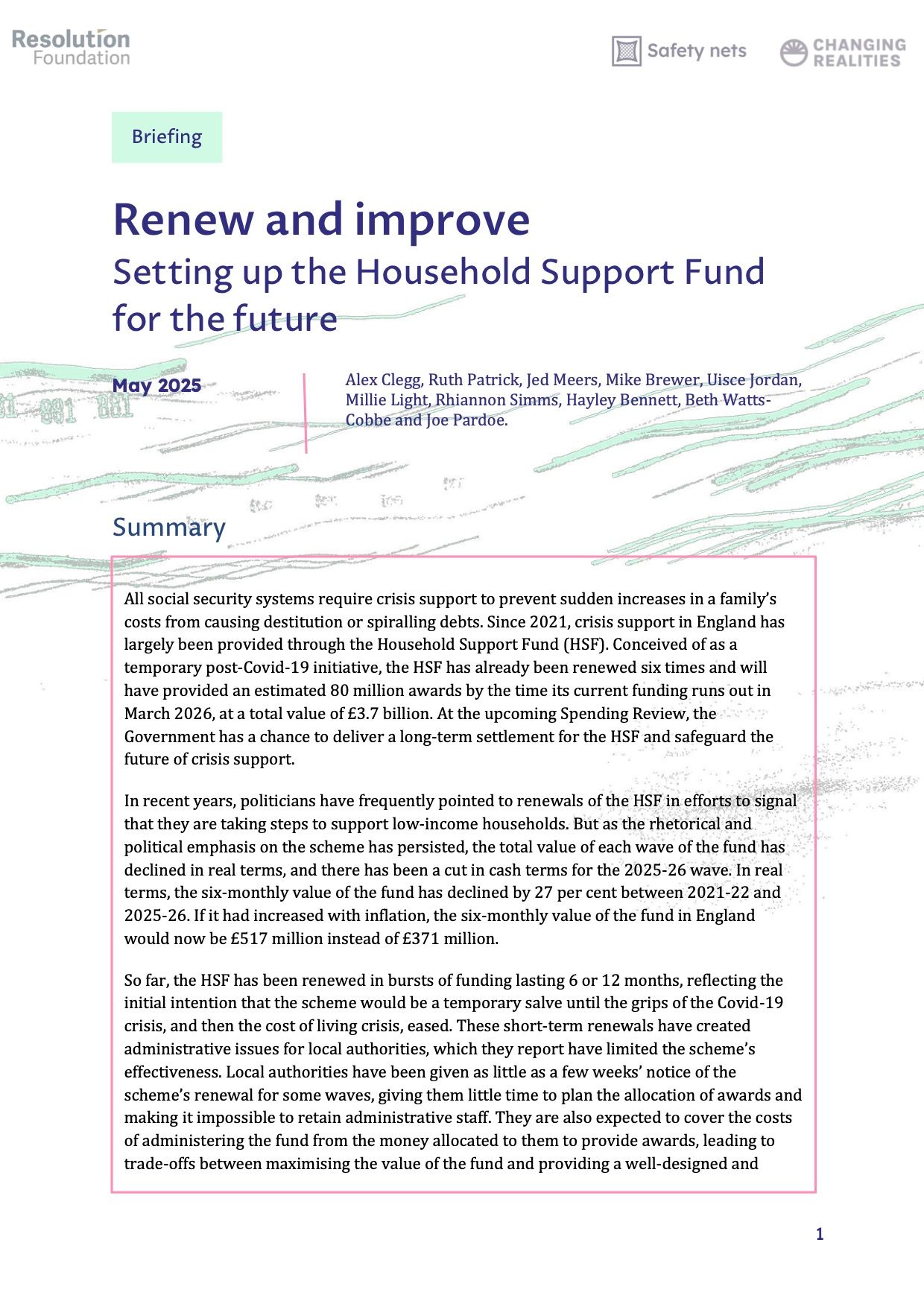
Renew and improve Setting up the Household Support Fund for the future
At the upcoming Spending Review, the Government has a chance to deliver a long-term settlement for the Household Support Fund, the largest form of discretionary crisis support in England. Conceived of as a temporary post-Covid initiative, the HSF has already been renewed six times and will have provided an estimated 80 million awards by the time its current funding runs out in March 2026, at a total value of £3.7 billion.
But the HSF needs reform as well as renewal. This briefing note draws on analysis of HSF management information data, as well as interviews with local authority workers delivering the scheme and participants of Changing Realities (a participatory project involving nearly 200 low-income parents) to outline the strengths and weaknesses of the first seven waves of the scheme. It then sets out recommendations for how a longer-term scheme could be improved.
Key findings
- The total value of each wave of the HSF has declined in real terms and has been cut in cash terms for the 2025-26 wave. In real terms, the six-monthly value of the fund has declined by 27 per cent between 2021-22 and 2025-26. If it had increased with inflation, the six-monthly value of the fund in England would now be £517 million instead of £371 million.
- Short-term bursts of funding and a lack of additional funding to cover administrative costs have created administrative issues for local authorities delivering the scheme. LAs have little time to plan delivery, and face trade-offs between maximising the value of their fund and providing a well-designed and targeted scheme.
- There has been wide variation between local authorities and over time in how HSF funding has been spent.
- Free School Meals support in the holidays is now the largest category of HSF expenditure. This is arguably not an ideal use of crisis support funding and would be better covered by an increased Free School Meals budget.
- The majority of HSF expenditure is delivered through vouchers. Vouchers can be less efficient than cash, and recipients express a preference for cash support as the most flexible and non-stigmatising way to respond to crisis needs.
- The HSF is frequently relied upon to top up inadequate benefit income, rather than as genuine crisis support. A scheme worth £1 billion per year (0.3 per cent of all UK welfare spending) and based on discretion rather than entitlement must not be seen as a panacea for more fundamental reform to shore up the gaps in the national social security system.
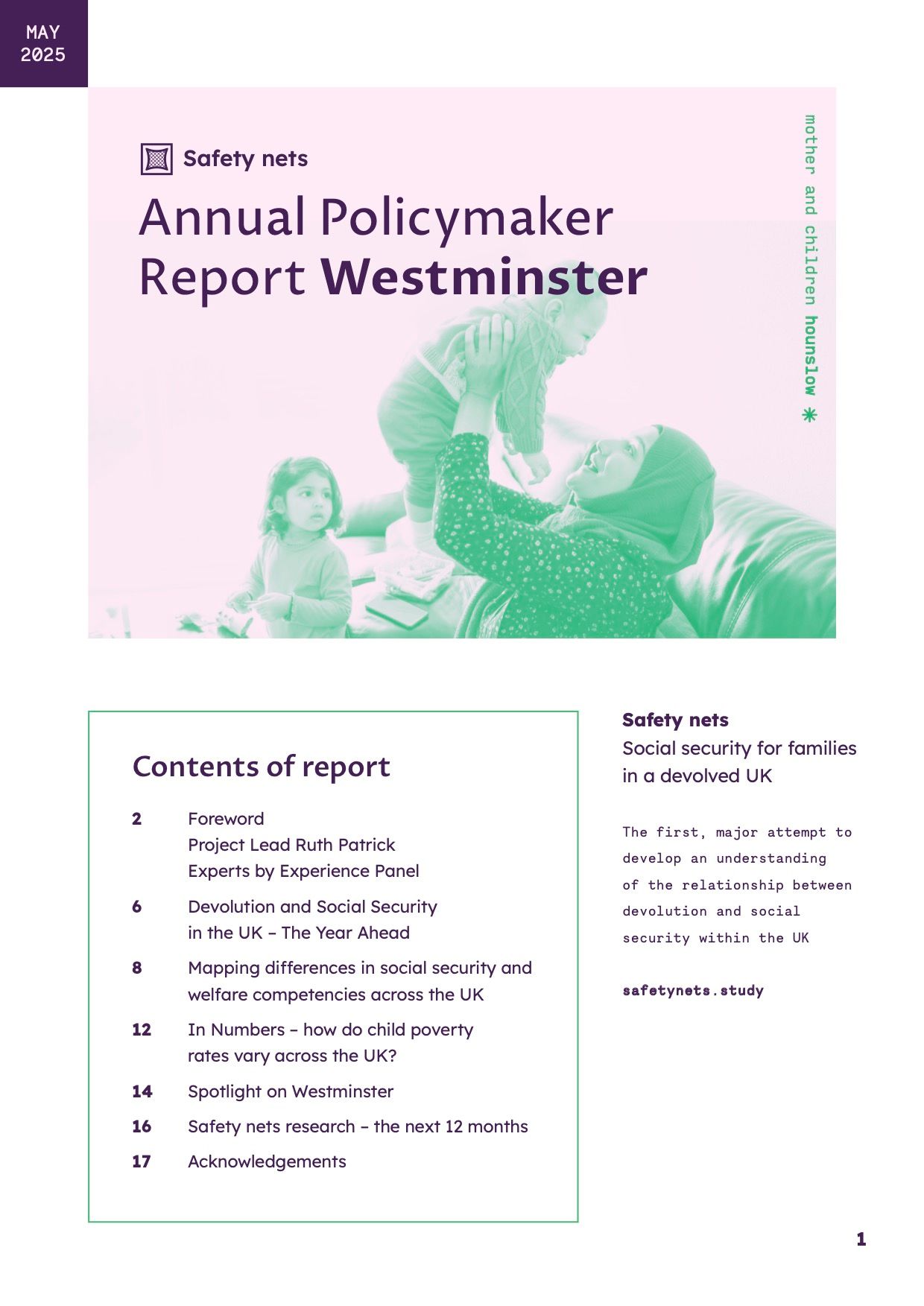
Annual Policymaker Reports 2025
This is the first in a series of Annual Policymaker Reports that summarise key findings from across the Safety Nets project for policymaker audiences. Each series has five reports containing key information for policymaker audiences in: England, Northern Ireland, Scotland, Wales, and UK-wide. The 2025 reports focus on child poverty.
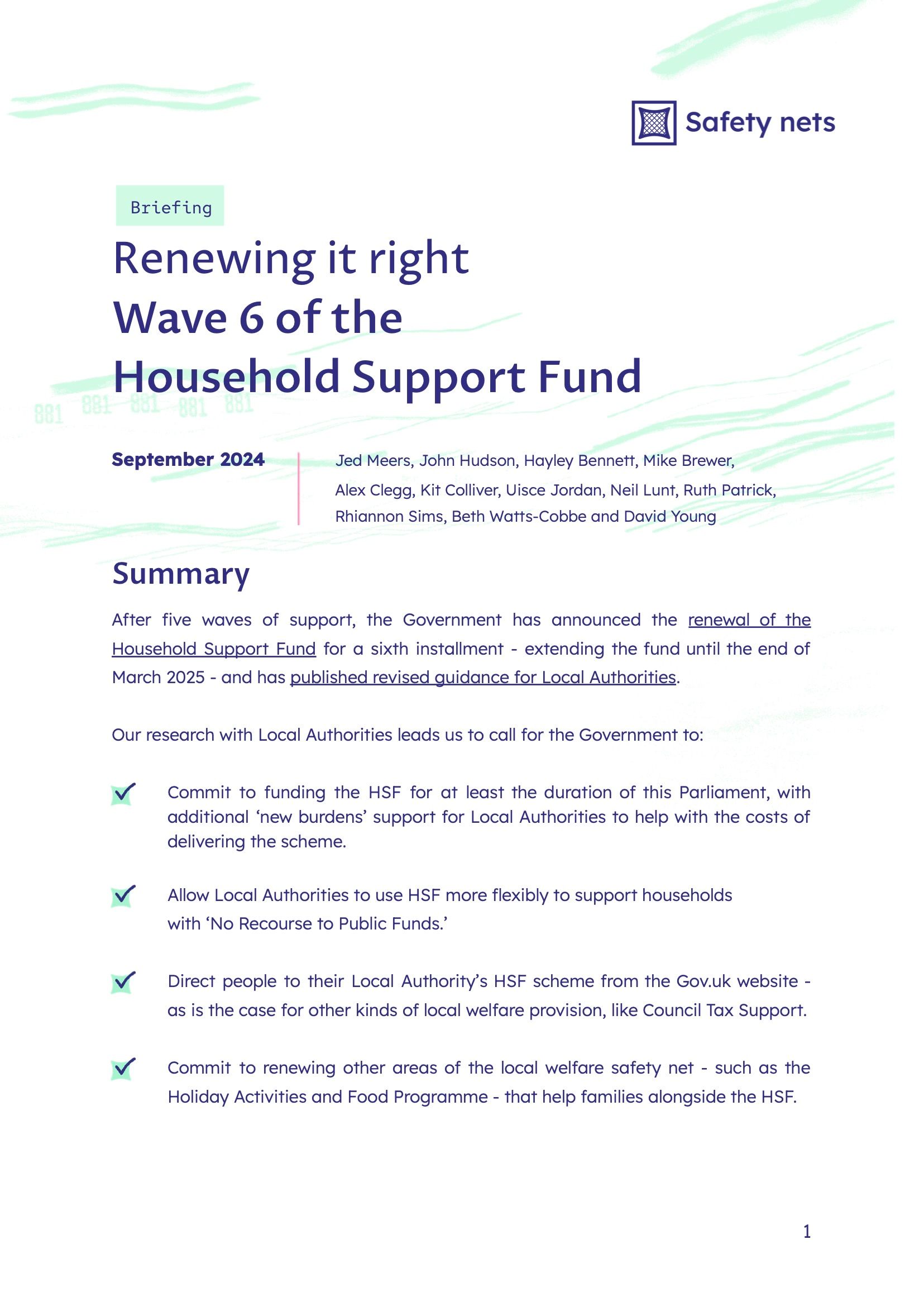
Renewing it right Wave 6 of the Household Support Fund
The Household Support Fund (HSF) is a discretionary fund introduced in 2021 for local authorities in England to support struggling households. After five waves of support, the Government has announced it will renew the HSF for a sixth installment - extending the fund until the end of March 2025.







